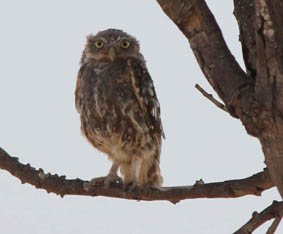
Scientists of the Cavanilles Institute of Biodiversity and Evolutionary Biology of the Science Park of the University of Valencia have shown that owls have less diversity of parasites than diurnal bird of prey. Until now, it was believed that the communities of parasites of these species were similar in any area, however the study published in the journal Plos One, shows that there are fundamental differences in the diversity of parasites, while its composition depends strongly on the characteristics of each geographic zone.
These conclusions “allow us to advance in our understanding of general theories on biological diversity because they reveal which aspects of patterns of parasite diversity are predictable and which are unique of each geographic region. This can be relevant to improve conservation actions both in prey and their parasites”, says the scientific of the University Francisco Javier Aznar, co-author of the study.
The researchers statically analyzed samples of parasites both diurnal raptors and owls of the south of Italy, particularly of Calabria and have discovered that although they have similar diets, the owls had different communities of parasites and more poor. Meanwhile, the analysis of parasitological data of owls and diurnal raptors of Galicia shown that in this region the owls also have less diversity of parasites, but the same species which appear in diurnal raptors. “Thus, we tested the importance of the region where the birds inhabit to determine the composition of the species of parasites, but not its diversity”, said Aznar, who adds that this same features seems to be present in Dutch and North American owls.
The importance of this work lies in the fact that is the first time that has been made a quantitative and comparative analysis of communities of parasites in prey and the results “help us to understand many scattered data in order to find ecological patterns, “according to Aznar. The scientists aspire to be able to determine the biological quality of anywhere in the world through the diversity of parasite species of birds.
The Professor Javier Aznar is part of a research group about ecology and evolution of metazoan parasites of vertebrates in the Cavanilles Institute of Biodiversity and Evolutionary Biology of the University of Valencia. Their line of work focus mainly in the study of parasites of pinnipedia (seals, walruses and sea lions), cetaceans and sea turtles, but regularly collaborates with other researchers in the study of parasitic fauna of other vertebrates, especially birds.
Last update: 28 de january de 2013 09:13.
News release



















